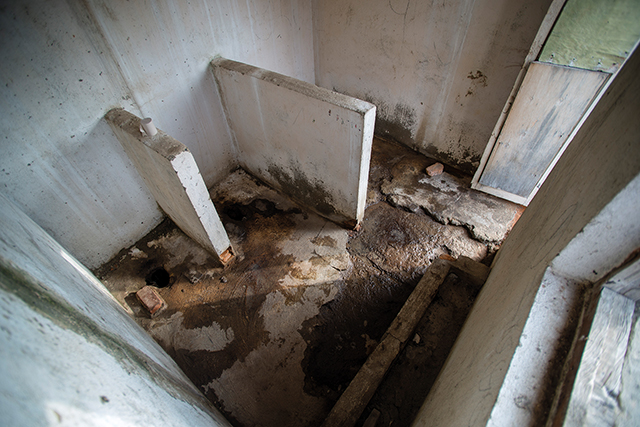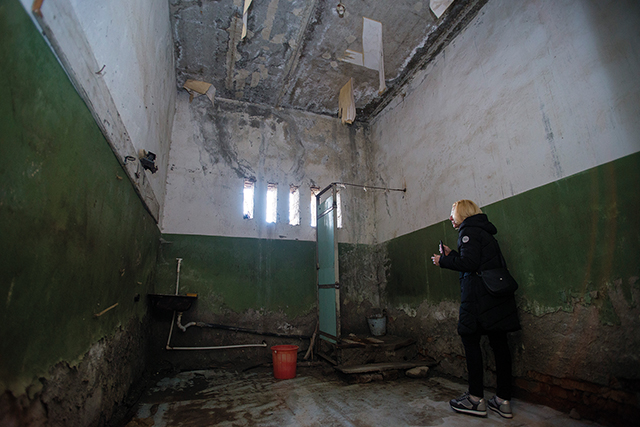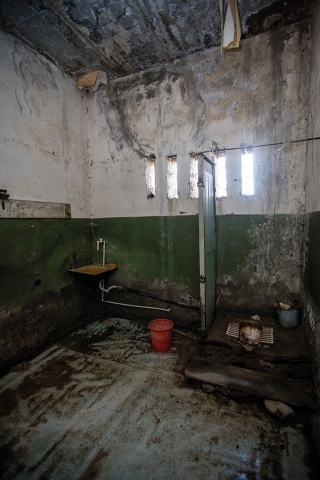Alarming Results of CENN’s Study on Water Sanitation & Hygiene (WaSH) at Schools in Georgia
Safe water, sanitation and hygiene are three closely connected preconditions for public health and a safe living environment. Georgia is party to a number of international agreements on Water and Health. In 2015, the country signed an Association Agreement with the European Union and undertook an obligation to harmonize its legislation with EU legislation and introduce internationally recognized approaches and regulations. The provision of safe water, sanitation, and hygienic conditions became even more essential to protecting human health, in light of the COVID-19 outbreak, as ensuring good WaSH practices in communities will help prevent human-to-human transmission of the virus.
Since 2017, CENN has been working on WaSH issues with EU support to help local communities have access to a healthy environment. In order to evaluate the situation on the ground and create a realistic picture, last year, CENN carried out a study based on UNICEF methodology to assess WaSH conditions in the schools of 10 regions of Georgia. The assessment covered 206 public and private schools.
The results showed that the provision of water for drinking and other purposes in the regions of Georgia is not effectively regulated, and this problem is especially acute in multiethnic communities where in most cases WaSH issues are not adequately addressed. Furthermore, WaSH issues are not among the top priorities and the population does not recognize the importance of WaSH issues or their direct impact on human health and education.
Water, sanitary and hygiene related issues in the selected schools were evaluated separately. The results will help decision-makers to plan further activities and provide targeted support.
Water
The quality of drinking water is not monitored on a regular basis. In the majority of evaluated schools, school administrations are not aware about the quality of drinking water in their schools, as laboratory tests of water have never been carried out.
It is also noteworthy that water pipes which provide water to schools are often outdated, or water intakes are not adequately protected, which increases the possibility of pollution of drinking water with bacteria or other harmful substances. As such, in order to prevent pollution of water with microorganisms/harmful substances and make it suitable for drinking, carrying out periodical laboratory analyses of the water is recommended.
The majority of the evaluated schools were not provided with an alternative water source, or adequately maintained and closed water storage tanks. This may create serious problems should the main water supply sources fail, as a result of which some schools will not be able to operate or will operate inadequately.
It should also be noted that in cold seasons, schools in the mountainous regions of Georgia face the issue of water shortage as, due to the low temperatures, water pipes freeze, leaving the schools without water. More attention needs to be given to the implementation of infrastructural works and insulation of water pipes providing water to the schools of these regions.

Sanitary
One of the most important problems identified by the WaSH assessment is associated with the state of school toilets. The sanitary conditions of the toilets in the vast majority of evaluated schools do not meet the relevant requirements: in most cases, the floors and walls of the toilets were not covered with tiles so as to enable their proper cleaning. Disinfection is not carried out in the majority of school toilets. Unsanitary conditions were detected in many school toilets during the visits. The situation is worse in the schools of villages populated by ethnic minorities.
In the majority of evaluated schools, the responsibility for meeting sanitary standards is laid on the cleaners, indicating the lack of a serious attitude to the issue and its low prioritization.
The situation regarding the accessibility of toilets for vulnerable groups was not satisfactory in the evaluated schools. There are toilets adapted for people with disabilities in some schools, but in most cases they are locked or used only by teachers.

Hygiene
The study of hygienic behavior showed that hygiene education is the most important issue in the majority of the evaluated schools. Hygiene education had not been introduced. In general, hygiene, as well as other problems associated with a healthy lifestyle, were not among the priorities in the majority of the evaluated schools, as can be seen from interviews with the management of these schools. Almost half of the evaluated schools had toilet facilities lacking washstands. In some schools, washstands were installed a distance from toilets, therefore going almost unused after toilet use. This is also confirmed by the fact that there were neither soaps (solid or liquid) or towels at the washstands.
“The results of the study show that WaSH issues are not taken seriously and are not among the priorities,” said CENN Project manager Ana Inasaridze. “In general, hygiene education is the most important problem in the majority of the evaluated schools. In this regards, retraining of teachers and dissemination of information-education materials in the schools should be considered as a priority measure”.
Prior to the implementation of infrastructural projects, it is recommended to organize awareness raising and mobilization campaigns in schools to ensure the long-term effects of future infrastructural projects (e.g., to prevent conditions that could lead to unsanitary conditions in renovated toilets after a certain period of time, to make sure that schoolchildren adhere to hygienic standards and rules, etc.).

The assessment has been carried out within the framework of the ongoing projects of CENN: “Upscaling WaSH Initiatives by Providing Essential Social Services for Women and Youth in Disadvantaged Rural Communities of Georgia” with financial support provided by the Global Water Challenge and the Coca-Cola Foundation (TCCF), and “Water for the Poor,” with financial support provided by the European Union, the main focus of which is the improvement of the health and living conditions of vulnerable multiethnic communities in Georgia.












